Factors to Consider Before Purchasing a Commercial Air Conditioner
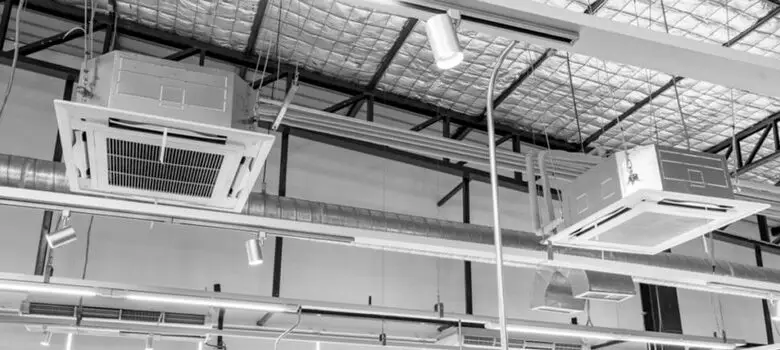
Facilities managers and business owners often do not have any idea of how to choose the right commercial air conditioning. They can be excused because it is the job of their engineering department. Nevertheless, business owners need to have an idea of the type of air conditioning system they need.
While the name of the manufacturer and the brand affect the popularity and the perceived quality of the product, you should check more salient factors.
A brand is not the only thing that you should consider. You can find high quality and high-performance air conditioning systems that carry a brand name that is not popular. What matters the most is the quality of service they provide.
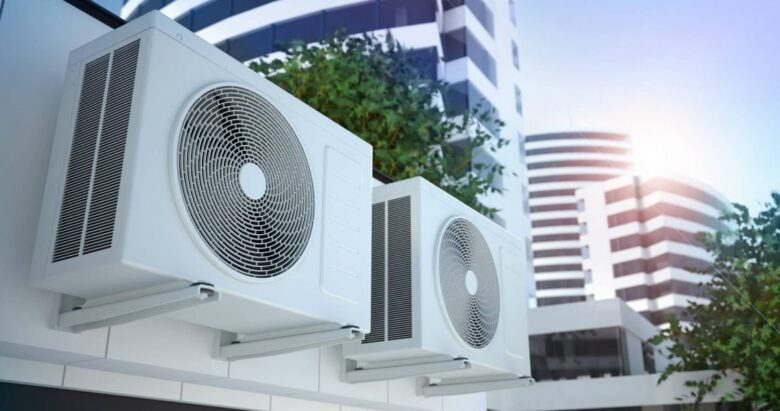
Factors to consider
The features of the commercial air conditioning unit are more important when you are considering purchasing an air cooling system for your business or your building.
Initial investment
When purchasing a commercial air conditioning system, one of the first things to consider is the cost of the unit and the installation cost. The price of the unit varies, depending on the brand, size, and other factors. But do understand that a commercial air conditioning system is very different from a residential unit, which explains the cost difference.
Since it is a significant investment, many business owners’ initial reaction is to look for a system that carries a lower price, which is not a good option. A cheaper unit may lack the cooling power your building needs, the lifespan is shorter, and its energy efficiency is lower. Instead of saving money, you may be spending more money on repair and maintenance as the cheaper unit ages.
Type of system
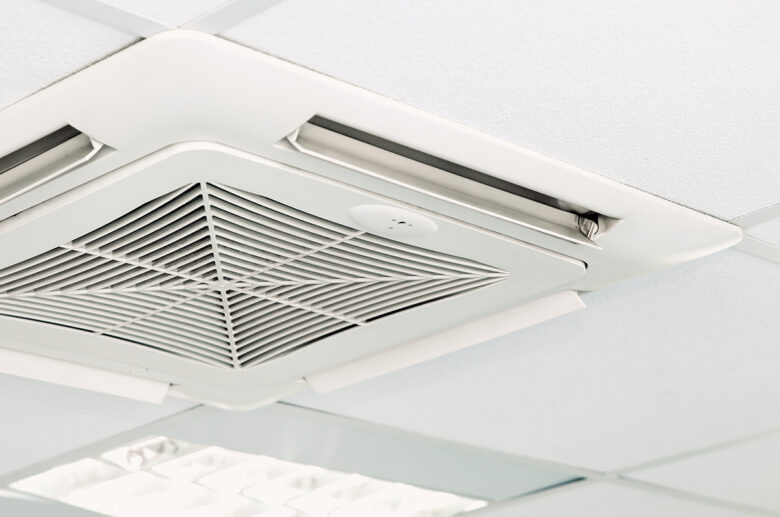
The type of unit is one of the first things you should consider, as there are several more factors. You must choose the one that fits the space available and the amount of cooling you need.
- Water-cooled. One of the technologies available is a water-cooled system. It should fit with the base system of the building and the layout of pipes that will distribute the chilled water throughout the building.
- Ducted split system. This type is recommended for buildings that are still under construction. A ducted split system requires a network of ducts to different parts of the building. It has an outdoor condensing unit and several indoor air handlers.
- Ductless. Commercial ductless air conditioning systems are suitable for older buildings that do not have existing ductwork. This type works similarly to a ducted split system, which has several indoor air handlers connected to an outdoor condenser. This type is also a good option when you want to supplement the capacity of your existing air conditioning system.
- Variable refrigerant volume (VRV). A VRV is still new and different from the standard split system. It does not operate at full capacity. Instead, it automatically adjusts to the operating conditions, making the unit more energy-efficient and quieter.
According to sub-cool-fm.co.uk, building and business owners should likewise consider the following:
- Calculating the need of the building by accurately measuring its space and determining its operating circumstances is essential.
- Proper design of the ductwork to efficiently distribute the cooled air or the correct placement of air handlers, if you have a ductless system.
- Quality of installation. The business owner should work with a professional and experienced contractor to ensure the proper installation of the commercial air conditioning system.
- Preventive maintenance. Ensure that you have a reliable maintenance contractor that has trained technicians and maintenance personnel to service your air conditioning system regularly.
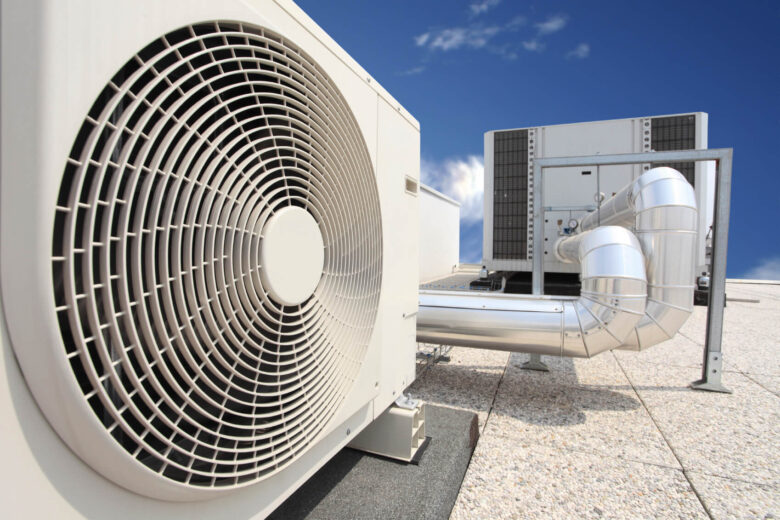
Energy efficiency
Since a commercial air conditioning system is expensive, you should choose a unit that is energy efficient, which will give you the advantage of:
- Lowering the energy consumption of the unit
- Reducing the system’s carbon footprint
- Minimize your monthly budget
- A professional contractor will help you check the coefficient of performance (COP) of the unit.
- Specifications and design
A commercial air conditioning system needs detailed planning to determine the following:
- Size of the space that needs cooling
- Availability of centralized ductwork
- Spaces for the outdoor and indoor parts
- Area available for the components
- Number of individual rooms that need cooling
- Centralized thermostat or zoned controls
If the building has no existing ductwork, you either choose to purchase a ductless air conditioning system or install ductwork. If ductwork already exists, you should get the contractor to inspect it to ensure that it is still in good condition and suits the system you are going to install. A technician can determine if it requires adjustments and improvements, or if renovations are necessary. In some instances, the ductwork should be customized for the new commercial air conditioning system for proper air distribution.
The space you are allocating for the components will determine the kind of system you should purchase and the parts’ placement.
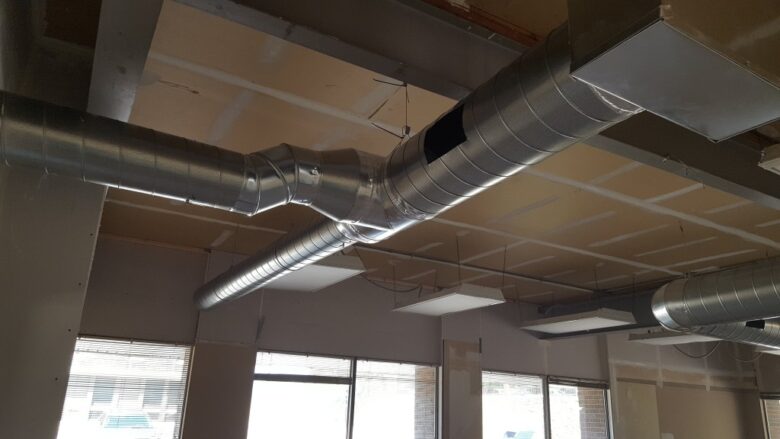
Performance and additional functionalities
Another thing that may contribute to your decision on what unit to purchase is what you want the unit to do. Is it only air conditioning that you need, or do you want a heating system as well? Indoor air quality is a cause for concern. Some of the things you have to address are issues regarding allergens, dust, and high humidity. These factors may require you to include a ventilator, air cleaner, or dehumidifier into the cooling system. It would help if you also thought about whether you need monitoring and remote control systems.
Position of the building
The location of your building can likewise affect your choice of an air conditioning system. A professional contractor will check the roof’s position and length of time the building is exposed to the sun before making a recommendation.
Factors affecting internal temperature
Ambient temperature is another thing that needs careful consideration. Some buildings may have internal processes that affect the temperature inside. A tenant may be operating a restaurant, and you have another tenant engaged in manufacturing. There machines and industrial appliances will generate heat. These areas will have higher temperatures than regular shops and offices. In this condition, it is better to have a zone-controlled system instead of a centralized cooling system.
Choose the quality and features of the commercial air conditioning system instead of relying on known brands alone as your gauge to purchase the unit. Seek professional advice so that you can find the most suitable unit that will fit the overall need of your building or business.
